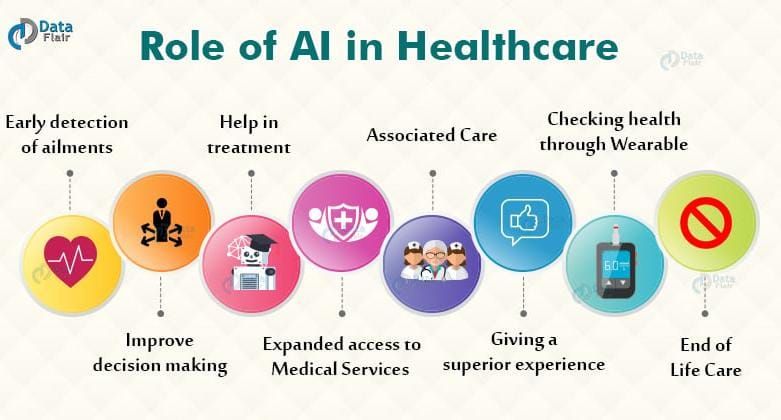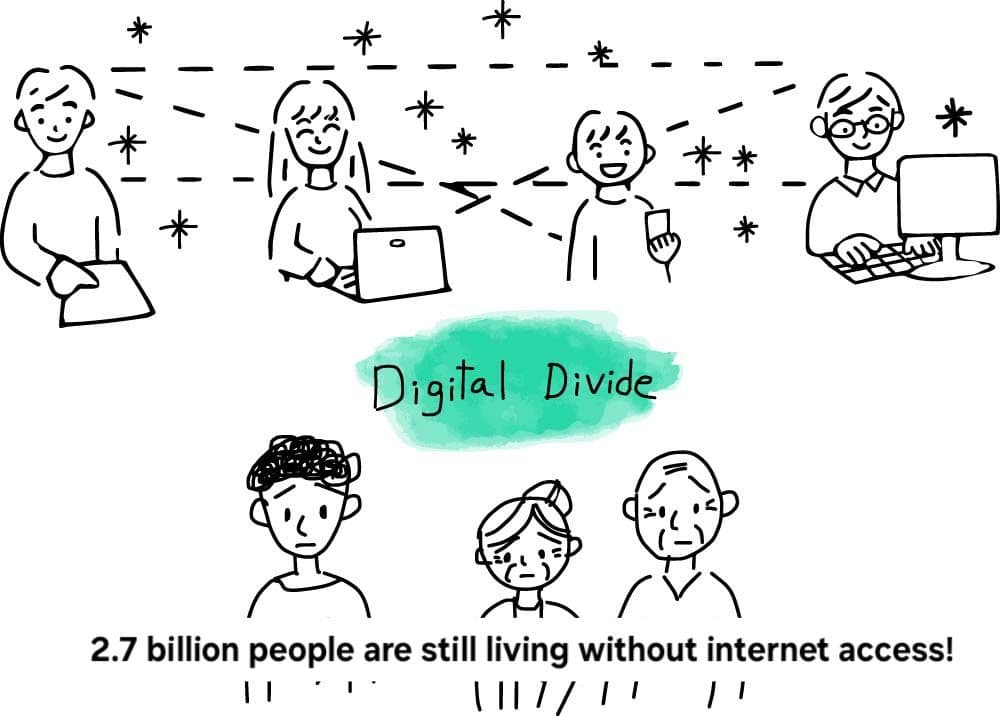
Ever since the word Artificial Intelligence came into the limelight, many industries are going through a major shift. However, the healthcare sector is one such industry that changed for good with the involvement of AI.
AI’s role in healthcare isn’t to replace doctors, but to assist them in performing their duties more effectively and efficiently for the benefit of patients.. This combined efforts of doctors and AI might bring a revolution into the healthcare industry soon.
We can expect a positive outcome with this team work, like it can help doctors talk to patients in a more convenient way by making sure people in faraway places get good medical assistance.
Even though it can bring so many positive impacts into society, it has its own set of challenges too.
Here, we’ll talk more about the role of AI in healthcare, the good things it brings, the problems we need to solve, and the exciting future it promises.
The Emergence of AI in Healthcare
AI is becoming an integral part of the healthcare sector ever since technology began to advance. AI is capable enough to handle huge amounts of data, recognising patterns and trends in the healthcare industry, and suggesting treatments that may escape human consciousness.
A key advantage of AI is its capability to rapidly and accurately process data. For instance, AI can evaluate thousands of medical images almost instantly – something that would take a doctor much longer and might be beyond human vision. This capability can significantly impact treatment decisions.
AI as a Partner, Not a Replacement
AI can support doctors, with their capabilities while preserving the essential human connection in the doctor-patient relationship. It cannot replace the human emotions such as empathy and compassion that are essential for patient care.
Doctors can now leverage AI for handling routine tasks such as checking lab results and tracking patient health. They can utilise this time to spend on more complex and critical tasks of patient care.
This flexibility can allow them to spend more time on diagnosis, treatment planning, and patient communication. By focusing on these challenging areas, doctors can build stronger relationships with their patients, creating trust and ultimately leading to better patient care.
Extending Quality Care to Remote Areas
One of the best advantages of AI in healthcare is its flexibility to extend care to people in remote or underserved areas. In many places, getting special medical care is hard. Patients in rural areas often have to travel far to see a specialist, and even then, they might not get the same care as people in cities.
AI can help close this gap by offering remote medical checkups and online doctor services. For example, AI tools can look at patient data and give advice to local doctors, making sure patients get the best care, even if they're far from a hospital. This way, AI can help save lives and improve health for millions of people around the world.
Challenges and Obstacles
AI in healthcare is very promising, but it does have challenges. One big challenge is the cost. Bringing AI into healthcare needs a lot of money for technology and training. Hospitals and clinics need to spend on the right equipment to use AI, and healthcare workers need to learn how to use these tools properly.
Another challenge is making sure AI systems are correct and dependable. In healthcare, even small mistakes can have big effects. AI tools need to be tested carefully to make sure they give accurate results. This means that experts, doctors, and rules have to work together to keep everything right and safe.
Ensuring data privacy and security is vital when AI is used in healthcare. AI requires access to personal information, so protecting this data and making sure it is not accessed without permission is crucial.
AI in Medical Education
AI helps not just with patient care, but also with teaching medical students. AI can create virtual training environments where students can practise medical skills and make diagnoses. These simulations act like real-life situations, so students can learn and make mistakes in a safe space.
AI can also make medical education better by adjusting lessons to fit each student’s needs. It can see where a student needs more help and give them special resources to improve. This personalised way of learning makes studying more interesting and helps students get ready for their future jobs in healthcare.
The Promising Future of AI in Healthcare
The future of AI in healthcare is very exciting and full of possibilities. As technology gets better, AI will help doctors and nurses take care of patients more easily, make work easier, and improve how we teach medical students. AI has a lot of great benefits, like helping doctors do their jobs better and giving good care to people who don’t have easy access to it.
To fully make use of AI in healthcare, continuous investment in research and education is necessary. Healthcare professionals should integrate AI tools into their work, while leaders must establish regulations to ensure patient safety and maintain a well-functioning healthcare system.
It helps doctors take care of patients by finding problems quickly and giving good advice. AI also makes learning for medical students more interesting with virtual practice and personal lessons.
AI is making healthcare better by helping doctors find illnesses quickly, treat patients well, and reach people in remote places. It offers many benefits, like improving patient care and supporting doctors, but it also brings along some challenges like high costs and ensuring data security.
In short, AI is here not to take over doctors’ jobs, but to assist healthcare professionals in multiple ways. By continuously learning and improving on the possibilities of AI, we can ensure it brings more changes to the healthcare industry, regardless of geographical barriers.
We can expect a future full of great possibilities and many more technological advancements in healthcare and related industries with the health of AI.
What aspects of AI in healthcare are you most enthusiastic about, and in what ways do you believe it will transform the way doctors provide care?

My Childhood Wasn’t an Easy One: A Journey From Struggle To Strength

How Technology is Revolutionizing The Healthcare Industry

How To Combine Traditional Medications With CAM for Optimal Health?
